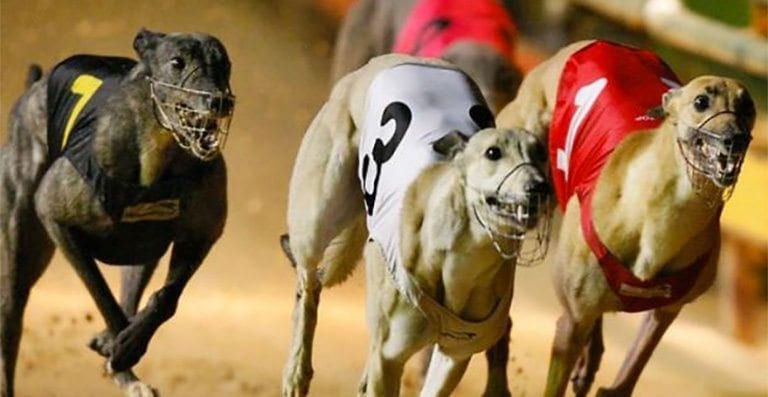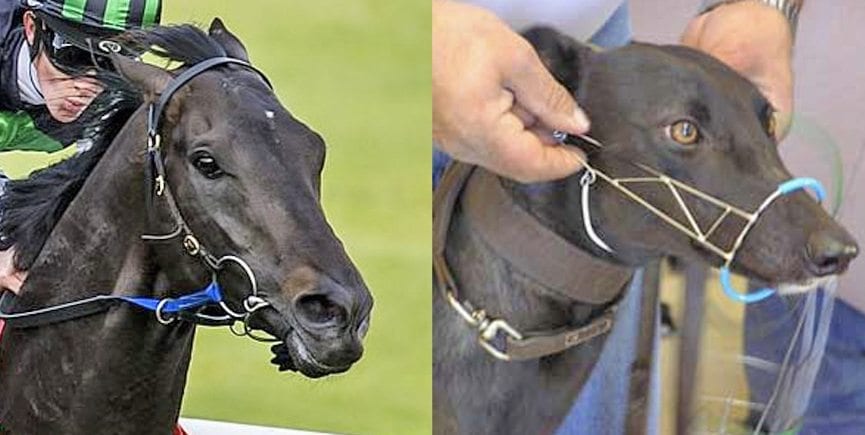Could racing eventually face new greyhound industry regulations?

NSW greyhound trainers will face life bans for not adhering to strict new welfare policies purposed by the independent review into the industry.
The long-awaited review has 122 recommendations to help ‘clean up’ the greyhound industry, which has placed an enormous emphasis on the welfare of greyhounds.
The chairman of the NSW Greyhound Industry Reform Panel, former premier Morris Iemma said the body will provide assistance to the industry in order to ensure the recommendations are adhered to.
“Central to our findings and our recommendations is that the greyhound industry can continue to operate in NSW where animal welfare is at the centre of its operations,” Mr Iemma said.
Among the main welfare issues addressed are euthanasia guidelines, lifetime dog welfare tracking as well as race day regulations, including a ban on muzzles.
Racing Minister Paul Toole said a response to the report will be made in the coming weeks.
“But I make this commitment – we will be bringing a bill back to the parliament. A bill that will ensure greyhound [racing] will continue to operate,” he said.
Why is the greyhound industry the only discipline that is singled out?
After a multitude of scandals which threatened to derail the greyhound industry entirely, the independent review into dog racing finally dropped on Thursday and is set to “ensure greyhound [racing] will continue”.
The report, according to Opposition racing spokesman Michael Daley, provides the government “all the tools it needs” to clean up the sport.
The review has 122 recommendations, many of which relate to the welfare of the greyhounds.
While it is imperative that animal welfare is a priority of trainers, are these guidelines a knee-jerk reaction to the constant scandals engulfing the sport, or are they of legitimate concern to the racing industry?
Several key sections of the welfare recommendations should attract the interest of the neutral reader, especially when compared to regulations in the thoroughbred racing industry.
Section three of the changes to welfare dictates that trainers must provide a ‘Process for euthanasia which means a greyhound may only be euthanised by a registered vet when the vet considers it is in the best interest of the greyhound’.
As a point of difference, the thoroughbred industry, via Racing Australia’s website says: “If injuries are sufficiently severe, an injured horse may need to be euthanised. If after evaluation euthanasia is deemed necessary, it should be undertaken as soon as possible with the sole aim of minimising suffering.”
There is a level of ambiguity afforded to the thoroughbred industry, a liberty that greyhound trainers are not provided.
Equine surgery is significantly more expensive and time consuming than its canine counterpart, which means a greater emphasis will be placed on maintaining the career of a successful racehorse as opposed to a dog, but does that mean ethical euthanasia for dogs is more or less important than a multi-million dollar racehorse which has an injury that can be repaired at great cost?
Of course not, but money talks.
Muzzle ban – is the tongue tie next?


Another point of interest is the ban on muzzles for greyhound trainers.
The relevant section reads ‘banning the use of barking muzzles or other devices that hinder the dog from being able to express normal behaviours, anxiety or distress’.
The horse racing equivalent of this is a tongue-tie, which essentially is used so a jockey can maintain a level of control over a galloper which continually gets its tongue over the bit, or swallows its own tongue.
The RSPCA is opposed to the use of tongue ties on racehorses as they inflict pain and distress.
Consistency is what the industry needs across all three racing disciplines, especially when it comes to the welfare of its four-legged competitors. There is always going to be discrepancies when there is significantly more money in one industry as opposed to the other, but the framework can always apply to both.
If recommendations for welfare can be justified in one racing industry, don’t think it won’t be applied to another. Otherwise, the report is self-serving and hypocritical, but when has a governing body ever been accused of that?